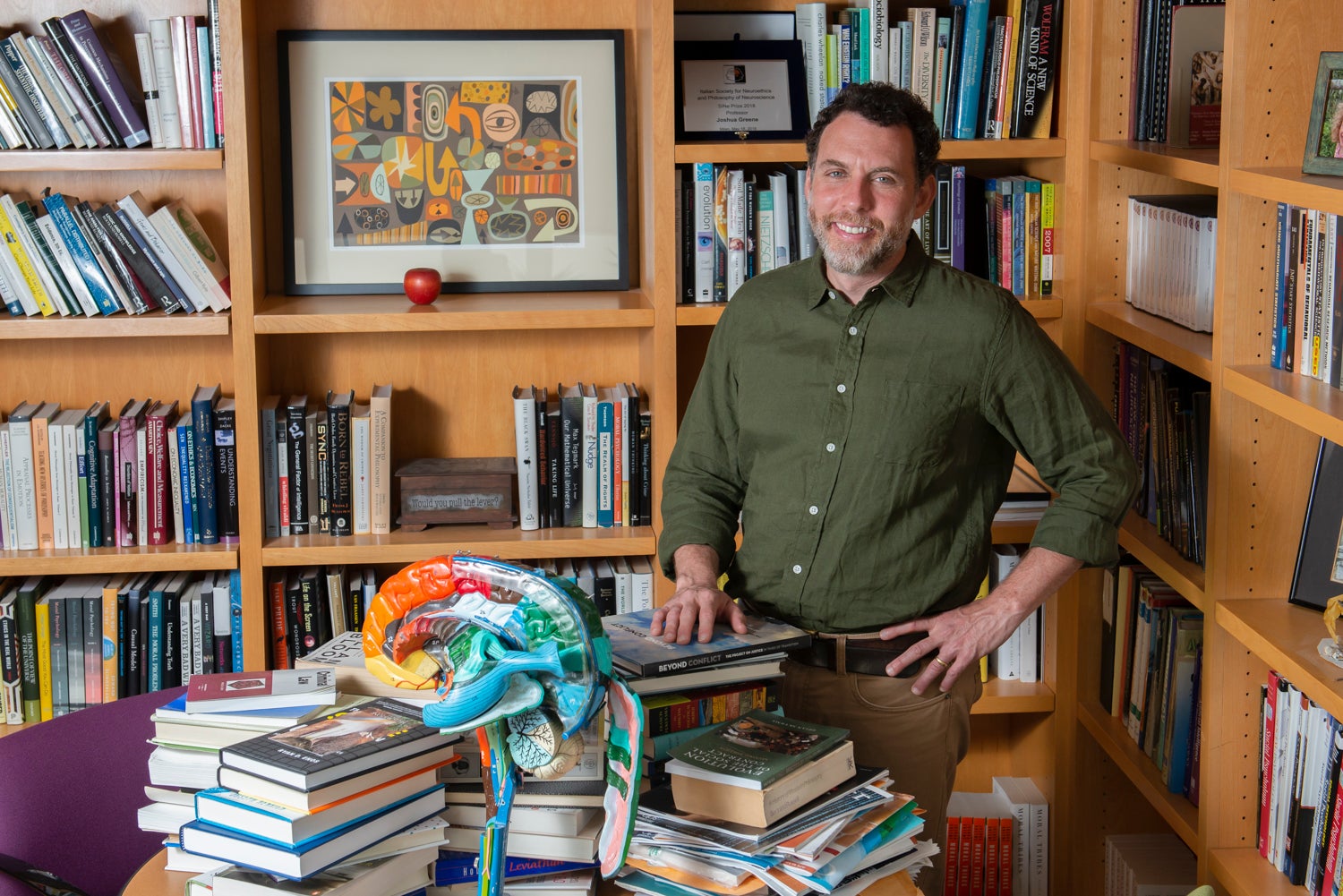
The Greene lab studies the mechanics of moral thinking, and high-level cognition more generally, using behavioral experiments and functional neuroimaging. Much of their research has focused on the respective contributions of “fast” automatic processes (such as emotional “gut reactions”) and “slow” controlled processes (such as reasoning and self-control). The lab has applied this dual-process framework to classic hypothetical dilemmas, real temptations toward dishonesty, beliefs about free will and punishment, belief in God, wishful thinking, cooperation, and conflict resolution. More recent work aims to understand the infrastructure of complex thought. This research examines how concepts combine to form ideas, how ideas are represented and manipulated through reasoning, the representation of propositional attitudes (e.g. believing something is true vs. wanting it to be true), and the relationship between linguistic and sensory modes of thinking.
